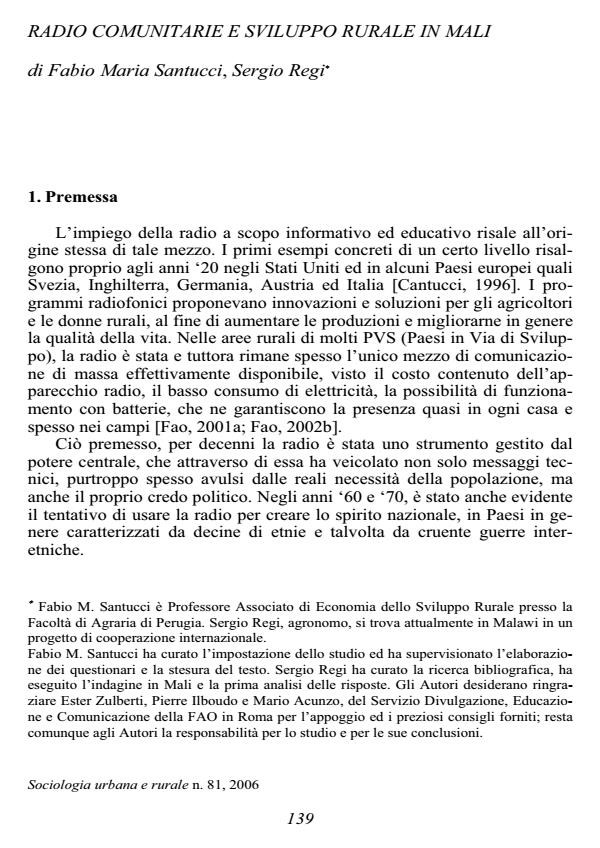Radio comunitarie e sviluppo rurale in Mali
Titolo Rivista SOCIOLOGIA URBANA E RURALE
Autori/Curatori Fabio Maria Santucci, Sergio Regi
Anno di pubblicazione 2007 Fascicolo 2006/81
Lingua Italiano Numero pagine 25 P. 139-163 Dimensione file 108 KB
DOI
Il DOI è il codice a barre della proprietà intellettuale: per saperne di più
clicca qui
Qui sotto puoi vedere in anteprima la prima pagina di questo articolo.
Se questo articolo ti interessa, lo puoi acquistare (e scaricare in formato pdf) seguendo le facili indicazioni per acquistare il download credit. Acquista Download Credits per scaricare questo Articolo in formato PDF

FrancoAngeli è membro della Publishers International Linking Association, Inc (PILA), associazione indipendente e non profit per facilitare (attraverso i servizi tecnologici implementati da CrossRef.org) l’accesso degli studiosi ai contenuti digitali nelle pubblicazioni professionali e scientifiche.
Radio has been used since the 1930s as a tool for popularizing all kinds of knowledge, agriculture included, with a substantially top down and centralistic approach, where the messages (either political and technical) were decided at the center (government or public research centers) and then diffused to the audiences. Only during the 1980s’, decentralization and communication for development have became new key words. Decentralization allows and simultaneously requires locally specific messages, while communication for development leads to favor participation and empowerment. Community radios are the most advanced evolution of this concept, because they are owned and managed by the communities, sometimes also in rural areas, to favor the elaboration and diffusion of information needed by the communities. In this paper, four rural community radios operating in Mali have been studied, all established within the framework of a FAO Project. The study reveals a composite picture: all radios are perceived by the people as an essential instrument and they receive a very high level of appreciation, although management and administration are not always optimal. Agricultural programs, although relevant, are not those most listened, because people prefer music and general news.
Fabio Maria Santucci, Sergio Regi, Radio comunitarie e sviluppo rurale in Mali in "SOCIOLOGIA URBANA E RURALE" 81/2006, pp 139-163, DOI: